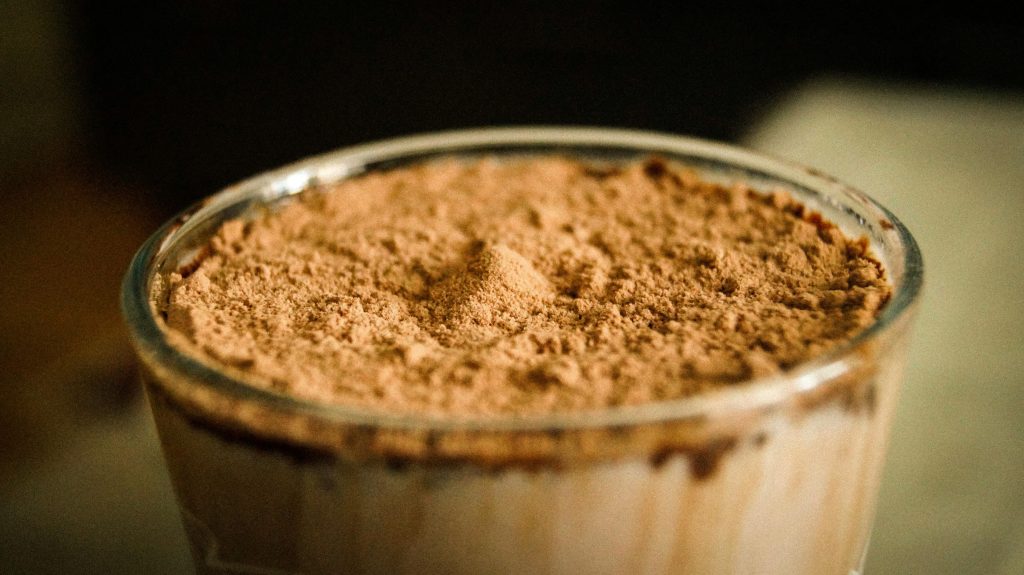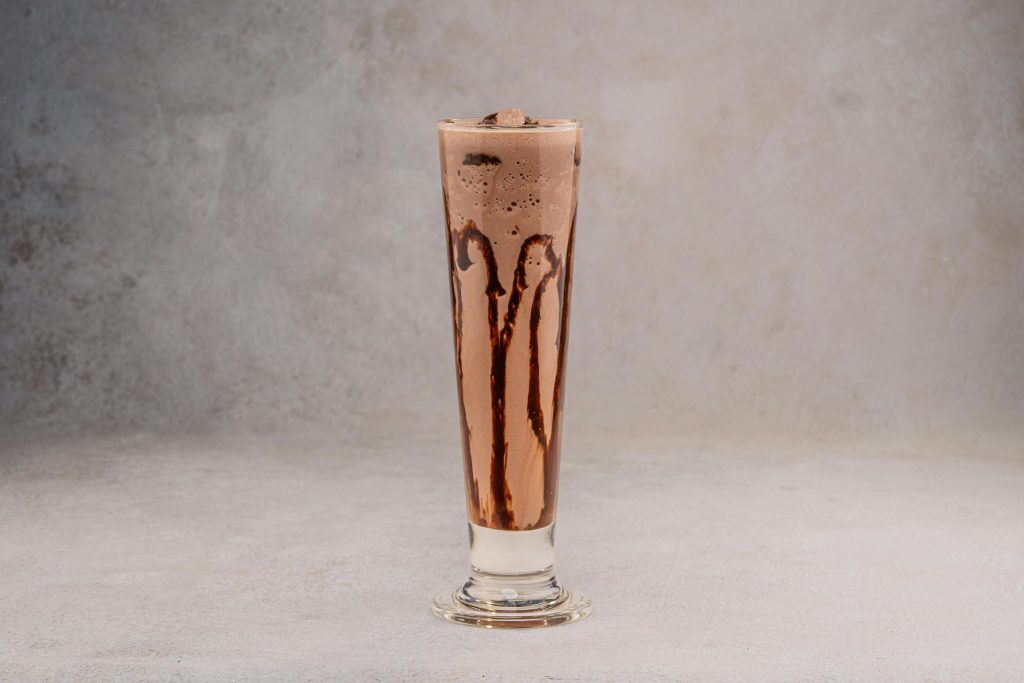Your cart is currently empty!
Research Shows Chocolate Milk is More Effective Than Energy Drinks

Imagine finishing an intense workout your muscles ache, your body craves replenishment, and your mind searches for the perfect drink to refuel. For years, energy drinks and sports beverages have dominated post-exercise routines, promising quick recovery and sustained energy. But what if the answer has been hiding in plain sight all along in a familiar, creamy glass of chocolate milk?
Recent research is turning heads by revealing that chocolate milk may not only compete with but also outperform popular energy and sports drinks in helping athletes, from high school students to professionals, recover more effectively. Beyond nostalgia and taste, this everyday drink delivers a scientifically backed combination of nutrients that refuel muscles, restore hydration, and support overall health in ways that energy drinks often cannot match.
As the thirst for better nutritional choices grows, especially in the world of sports and fitness, understanding why chocolate milk stands out offers fresh insight into how simple, affordable options can fuel peak performance and recovery. How exactly does this classic beverage accomplish so much? The answer lies in the powerful science and real-world results behind chocolate milk’s rise as a recovery superdrink.
The Science Behind Chocolate Milk’s Recovery Power
Chocolate milk’s reputation as an effective recovery drink is rooted in its exceptional nutritional composition, which directly supports the body’s needs after exercise. A standout feature is its naturally occurring 3:1 ratio of carbohydrates to protein a balance widely recognized by sports nutrition experts as ideal for replenishing energy and repairing muscles. Carbohydrates help restore glycogen, the stored form of energy depleted during physical activity, while protein supplies the essential building blocks to rebuild and strengthen muscles.
Unlike many sports drinks that primarily contain carbohydrates and electrolytes, chocolate milk provides both whey and casein proteins one quickly absorbed for immediate muscle repair, the other digested slowly to sustain recovery over hours. This dual-protein benefit enhances muscle rebuilding more effectively than carbohydrate-only options.

Scientific studies support these advantages. Research published in journals such as Applied Physiology, Nutrition, and Metabolism demonstrates that chocolate milk not only helps restore hydration and electrolyte balance but also reduces muscle soreness and promotes faster recovery after intense workouts. These effects contribute to improved performance in subsequent exercise sessions.
Beyond macronutrients, chocolate milk offers a robust supply of essential micronutrients, including calcium, vitamin D, potassium, phosphorus, vitamin B12, and riboflavin. These nutrients are vital for bone health, energy metabolism, and immune function, making chocolate milk a nourishing choice that benefits the whole body, not just muscle recovery.
Studies on Chocolate Milk and Athletic Performance

The compelling science behind chocolate milk’s recovery benefits is reinforced by real-world studies involving athletes of various ages and training levels. One notable investigation from the University of Texas at Austin focused on nearly 100 high school athletes who participated in a rigorous five-week training program. Researchers divided the athletes into two groups: one consuming chocolate milk for recovery and the other drinking a carbohydrate-only commercial sports beverage. At the study’s conclusion, the chocolate milk group demonstrated a 3.5% increase in bench-press strength, while the sports drink group experienced a 3.2% decline in the same measure. Similarly, the chocolate milk drinkers improved their squat performance by 15%, nearly doubling the 8% improvement seen in the sports drink group. These differences highlight the critical role of chocolate milk’s protein content in promoting strength gains beyond what carbohydrate-only drinks can achieve.
Another practical, ecologically valid study took place in a high school summer camp designed to improve strength and agility. Over seven weeks, student-athletes consuming a store-bought chocolate milk beverage showed significantly greater improvements in composite strength (bench press plus squat) compared to peers drinking a carbohydrate-rich, protein-free sports drink. The chocolate milk group gained an average of 20.5 kilograms in strength, compared to only 4.8 kilograms in the sports drink group. This study demonstrated that chocolate milk is not merely a laboratory curiosity but a feasible, affordable, and accepted recovery beverage in actual athletic settings.
Endurance performance also benefits from chocolate milk consumption. A smaller study with futsal players found that drinking chocolate milk after intense play increased the time athletes could exercise before exhaustion, compared to placebos or other carbohydrate-fat-protein blends. This may relate to the extra carbohydrates in chocolate milk, which provide immediate fuel for working muscles, and the presence of electrolytes that aid hydration and nerve function.
Practical Benefits Beyond the Lab

Chocolate milk’s value extends well beyond scientific studies, resonating with athletes, parents, and coaches due to its practical advantages in everyday life. One of the most compelling benefits is its accessibility and affordability. Unlike specialized recovery drinks and supplements, chocolate milk is widely available in grocery stores and school cafeterias, making it a convenient option for athletes at all levels. Its familiar taste also helps encourage consumption, especially among children and teens who might otherwise resist nutrient-rich recovery beverages.
For young athletes, chocolate milk is an effective way to meet essential daily nutritional needs. It provides key nutrients like calcium and vitamin D, which are crucial for developing strong bones and teeth during growth phases. Many parents appreciate that chocolate milk delivers these benefits without the high levels of added sugars commonly found in sodas or juice drinks, striking a balance between taste and nutrition.
Furthermore, chocolate milk fits well into a balanced diet when consumed in moderation. While critics sometimes point to its sugar content, the sugars in chocolate milk predominantly come from natural milk lactose and a modest amount of added cocoa sweetness, which is considerably less than many popular sugary drinks. This natural sugar content, combined with milk’s protein and micronutrients, supports not just immediate recovery but also longer-term health.
Coaches and trainers frequently recommend chocolate milk post-exercise because of its ability to reduce muscle soreness and speed recovery, helping athletes return to training sooner and potentially improve overall performance. Its nutritional profile also makes it a versatile choice for a variety of sports and fitness activities, whether an athlete is engaged in strength training, endurance events, or team sports.
Expert Perspectives and Recommendations

Leading experts in sports nutrition recognize chocolate milk as a credible and effective recovery drink grounded in solid scientific evidence. Registered dietitians and exercise physiologists often highlight chocolate milk’s balanced nutrient profile as ideal for athletes seeking efficient replenishment without resorting to expensive or artificial supplements. Dr. Stacy Sims, a well-known exercise physiologist, emphasizes that the combination of carbohydrates, high-quality protein, and electrolytes in chocolate milk supports both muscle recovery and rehydration, making it a “simple, accessible post-workout option that meets many athletes’ needs.”
Coaches also appreciate chocolate milk’s practicality. Many incorporate it routinely in post-practice or post-game recovery protocols, citing its benefits for reducing delayed onset muscle soreness (DOMS) and accelerating muscle repair. As one seasoned high school coach noted in a sports nutrition podcast, “Chocolate milk helps our athletes bounce back faster. It’s easy to serve, kids actually want to drink it, and it’s scientifically proven to improve strength gains.”
From a dietary standpoint, registered dietitian Keri Gans points out that “moderation is key.” She acknowledges concerns about added sugars in chocolate milk but clarifies that the sugar content is typically lower than that found in sodas or many commercial energy drinks, and it is balanced by the nutrient density chocolate milk offers. She recommends choosing versions with moderate sugar and pairing chocolate milk with a balanced diet for best results.
For athletes and active individuals wondering about caffeine or other ingredients commonly found in energy drinks, experts caution that these can sometimes cause unwanted side effects such as jitteriness or dehydration. Chocolate milk, on the other hand, delivers recovery benefits without stimulants or artificial additives, making it a safer and more wholesome choice for many.
Overall, the prevailing expert advice is to consider chocolate milk a science-backed, cost-effective, and enjoyable recovery beverage that fits well within a balanced approach to athletic nutrition. Coaches, parents, and athletes alike are encouraged to embrace it as a reliable aid to enhance performance and safeguard health.
Why Chocolate Milk Deserves a Spot in Your Recovery Routine

The growing body of research and expert recommendations collectively highlight chocolate milk as an effective, accessible, and wholesome alternative to many energy and sports drinks on the market. Its unique combination of carbohydrates, high-quality proteins, electrolytes, and essential nutrients supports muscle repair, replenishes energy stores, and aids hydration all critical elements for optimal recovery and athletic performance. Beyond its scientific benefits, chocolate milk’s affordability, taste appeal, and nutrient density make it an appealing choice for athletes of all ages, parents concerned about balanced nutrition, and coaches seeking practical recovery solutions.
Choosing recovery beverages that nourish the whole body rather than delivering just quick energy or empty calories contributes to long-term health and sustainable athletic success. As new research continues to affirm what athletes and families have enjoyed for decades, it may be time to rethink traditional assumptions about post-workout drinks. Whether on the field, in the gym, or during daily hydration, chocolate milk stands out as a smart recovery companion worthy of a place in every athlete’s routine.
Consider reaching for a glass of chocolate milk after the next workout your muscles, bones, and body will thank you.
